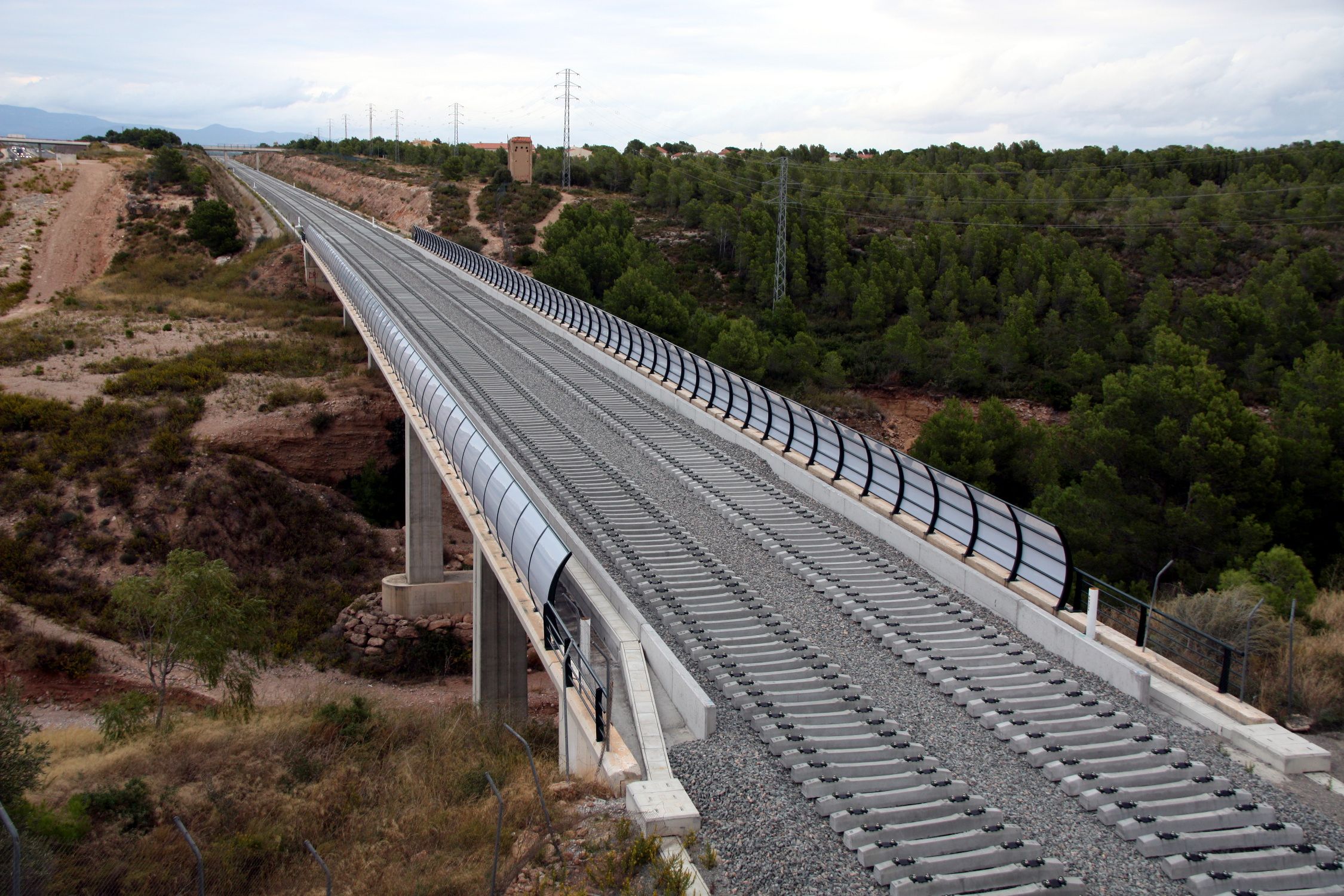The Spanish state's negligence towards investment in Catalonia has meant an opportunity cost to the territory valued at 8 billion euros (£6.7 billion; $8.9 billion), equivalent to 3.3% of GDP, according to a report prepared by the Barcelona Chamber of Commerce on the economic impact of the shortfall of infrastructure investment by Spain in Catalonia over the period 2001 to 2018. What's more, if 100% of the budgeted investment in transport infrastructure in Catalonia had been carried out, it would have generated almost 20 billion euros of additional turnover in Catalonia. That would have allowed for the creation of up to 111,501 full-time jobs and generated 3.78 billion euros' worth of take-home wages.
The study was presented at Barcelona's Casa de la Llotja. Present were the Chamber's president, Joan Canadell, and the president of Catalonia, Quim Torra, and details were given by Carme Poveda and Cristian Bardají of the Chamber's studies office. Poveda explained that the State has failed to invest just short of 8 billion euros in Catalan infrastructures which had been budgeted for, and, in fact, "investment remains at minimal levels, despite the economic recovery and the increase in tax revenues between 2014 and 2018".
"And after that, they tell us that it's the fault of the independence process that Catalonia's GDP isn't growing and that Madrid is overtaking us," commented Canadell. "But in fact, it's natural for Madrid to overtake us if they carry on investing there, while here, we carry on having a shortfall!"
In fact, according to the Chamber, the level of execution has been at an average of 73.7% between 2001 and 2018; as such, almost a quarter of the budgeted investment in Catalonia hasn't been carried out. One figure, among the "most worrying" according to Canadell, is that in 2018 the execution only reached 54%, "one of the lowest ever recorded". Per head of population, in the period 2011-2018, the Spanish state invested an average of €107 per Catalan per year, whilst the average across all of Spain's autonomous communities is €136 per capita - a figure that is 27% higher.
45 billion euros to eliminate the deficit
Given this situation and looking towards the future, the Chamber considers that Catalonia requires an investment of around 45,000 million euros by 2030 to eliminate the infrastructure shortfall.
With the data available, Catalonia is estimated to be the location of 15.7% of the capital infrastructure stock of Spain as a whole. Thus, in order to eliminate the cumulative shortfall and reach the figure of 19% in Catalonia's capital infrastructure in relation to Spain by 2030, and so to reach the same levels of those of leading European countries, the gross investment would have to be €3.8 billion annually between 2019 and 2030, with a total gross cumulative investment of €45.33 billion over the period.
This annual gross investment rate of 3.80 billion euros - to be allocated among the three public administrations (Spanish government, Catalan government and local governments) and including the business sector, both public and private - "would imply a substantial increase with respect to the 2.58 billion euros of gross investment in infrastructures that were made in Catalonia annually on average during the 2001-2013 period," says the report.
In the words of Joan Canadell, "the Spanish state needs to acknowledge its debt to Catalonia, and in fact, with the negotiation of a new Spanish government on the table, our political parties should not give their support if they don't accept this debt," he asserts. "We would also remind them of the Third Additional Provision" - a clause of Catalonia's Statute of Autonomy which guarantees a minimum level of investment - "but we don't have much confidence in that either." However, "transferring assets to the Catalan government, such as ports, airports, roads or anything with an asset value, could be part of the solution to this problem," says Canadell.
And a reflection: "Can you imagine what sort of economy would be generated in Catalonia by those 45 billion euros? If 8 billion euros generate 3.3% of GDP, imagine with 45 billion", exclaims the business leader.
As a result of all of this, Canadell has called on "all chambers of commerce, employers, [business group] Cercle d'Economia and the professional associations to create a working group, and together find a solution to take to central government and solve this problem once and for all. We can't go on for more years like this," he asserts.
The grievances
The report also highlights the differences between what Catalonia contributes and what it receives in terms of infrastructure. Catalan roads carry 15% of Spain's heavy vehicles, but Catalonia only receives 9% of the state investment in roads; it has 23% of rail passenger traffic, but receives 13.1% of rail investment; 20% of all Spanish air passengers go through Catalan airports, but Catalonia receives 10.4% of airport investment, and finally it has 18% of port freight, but only 15.7% of the investment in ports.
Priority projects
The Chamber's study also includes a sector-by-sector summary of the basic infrastructure priorities in Catalonia, with an estimated total investment of 15.2 billion euros. In line with the imbalances outlined above between investments executed and the intensity of infrastructure use, the growth of Catalonia networks would be best assisted by prioritizing the passenger rail network and road network.
In fact, last week the Chamber of Commerce and the Catalan Ombudsman made a symbolic rail journey from Barcelona to Vic on the R3 line - noting the poor state of the line, which is a single track in many sections - in order to highlight the need for improvements to the infrastructure.

